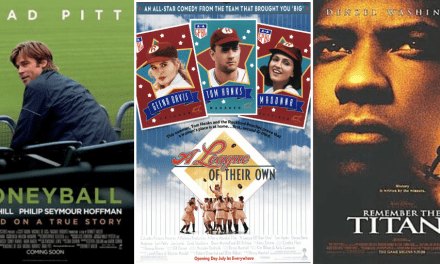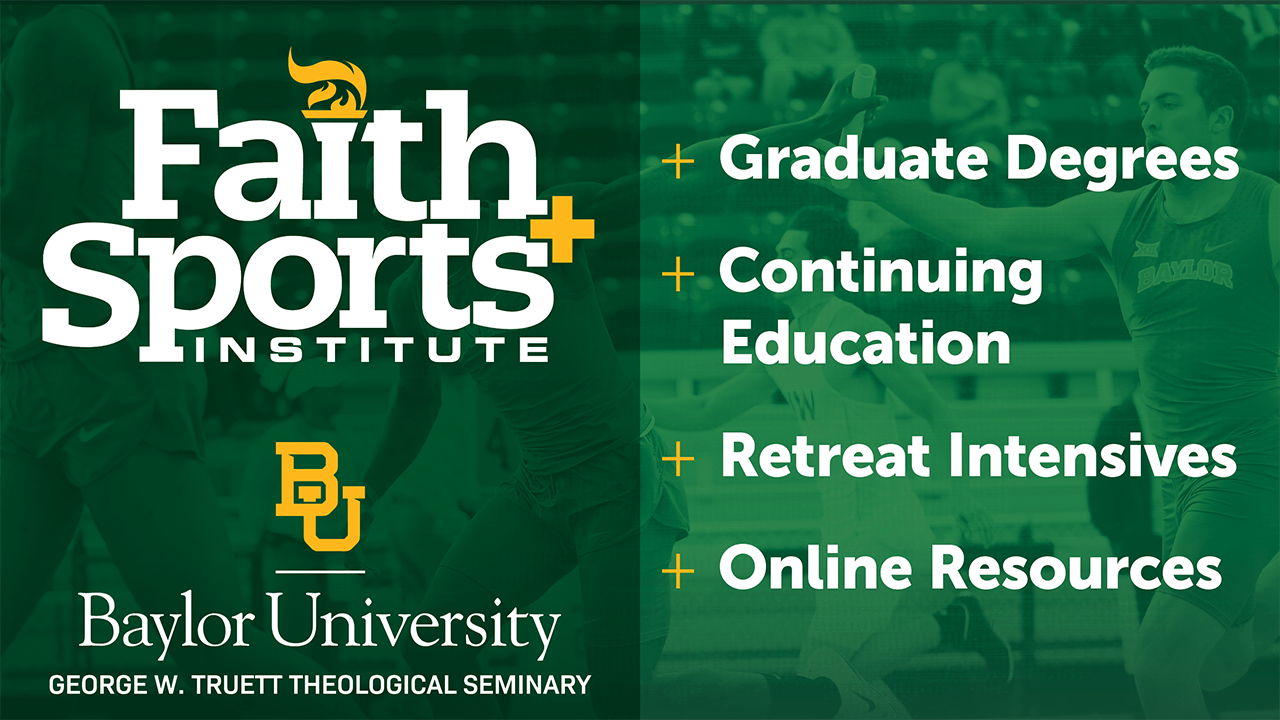Editor’s note: This is part of a series of interviews by Austin Hallman, a graduate student with Truett Seminary’s Faith & Sports Institute, meant to find out the answer to this question: What is God up to in sports? Austin will be interviewing leaders from different sports contexts, and we hope you will be blessed and encouraged by their testimonies. This interview features Jonny Reid, a sports ministry leader with Christians in Sport in the United Kingdom.
Tell me a little bit about your journey with faith and sports and how you got to where you are today.
I’ve always loved sport. Basically, anything with the bat on the ball: field hockey, cricket, golf. I got it from my dad, who loved sport. From a young age, I loved sport, too, and couldn’t get enough of it. Then I moved to India when I was twelve, where both field hockey and cricket particularly became major, major loves. You can’t move in India without cricket being played.
I grew up in a Christian family, but faith and sport didn’t really connect until about age seventeen. We were actually with Christians in Sport (CIS), who I work for now. I went to one of their summer camps, and this was the first time I saw that my sport could be something which was part of my worship to God.
In some ways, what they taught really connected my whole life to worship. It stopped just being what I did on a Sunday when I went to church. I realized my whole life could be lived as an act of worship, including my sport. It was incredible to make that connection.
For Americans who might not be familiar with Christians in Sport, how would you describe the ministry?
We exist to reach the world of sport for Christ. It’s a big vision, bold vision. We work in the United Kingdom, but also in Europe and around the world with elite athletes. We disciple them and equip them to live and speak of Jesus, to understand their identity, who they are, and to understand that sport can be worship.
We do the same with college students, young athletes, and adults who still play or coach competitively. I still play very low-level cricket in England, but we help people like me who want to live and speak for Jesus in the clubs as well.
In preparation for the 2024 Olympics, CIS put out a sports mission pack and short book on Eric Liddell. So why Liddell and why now?
You may or may not have heard of the story of Eric Liddell from 100 years ago in the 1924 Paris Olympics. Famous from the 1981 film Chariots of Fire, he was one of the first public Christian athletes. A Scottish runner/sprinter, he spoke boldly of his faith, and it transformed his view of sport.
One of the famous phrases attributed to him is “When I run, I feel God’s pleasure.” He saw sport as a gift from God, given for our pleasure. Not something to define ourselves by, but something in which we can find joy. He famously chose not to run on a Sunday during the Olympics, so he had to switch events from the 100 meters, which was his favorite event, to the 400 meters. But he still won gold, somehow, redefining the 400 meters forever.
It’s an incredible story, and being 100 years out, it’s an exciting time to talk again about one of the first great Christian witnesses in the world of sport.
What do you think people need to know or learn from his life?
From Eric’s life, I’d say his joy in the gifts God had given him.
You can learn from him what a bold witness looks like, too. He stood up for his convictions. He was firm in his faith, even when it was inconvenient, when it caused him to miss an Olympic event. I think we as Christians can learn from that.
He was an athlete, but also an incredibly humble man and a gentle man with real sportsmanship. His faith transformed how he did everything.
What is your vision for the Eric Liddell content you’ve developed? What impact do you hope to see?
Our aim is to help Christians and churches through his story and other resources. We’ve developed a couple of short films, as well as some tracks and books.
We want those trusting in Jesus and also those who don’t yet trust in Jesus to see what life in all its fullness looks like. And Eric Liddell’s story shows how that’s found in this received identity, an identity given to us by God, not what we can earn. Out of that we have real freedom and joy, and we can compete and use the different gifts God has given us, whatever they may be.
We’d love people to grasp that kind of transformed life which can come from knowing Jesus.
How will CIS be involved in the upcoming Olympics?
We’ll be on-site in Paris. We’ve got at least one chaplain in the village, and we’ll have another one outside working with athletes from all around the world.
We’re also going to work locally with churches by giving them resources to help them share the gospel, whether it’s through putting on a service or inviting us to come and run a sports quiz.
We’ve now got eight youth summer camps where we share the gospel, too, so we’ll tie those all in with the Olympics.
There are loads of opportunities to get involved and serve and help people get excited.
Are there any Christian athletes from England that we should know about?
There’s a Paralympic sprinter, Kare Adenegan. She’s going to win a lot of gold medals. She’s very public about her faith.
A couple of 100 meter sprinters, too, such as Jeremiah Azu. My favorite story is a guy named Eugene Amo-Dadzie. He’s known as the fastest accountant in the world, because he was working full-time in an accountancy firm, went down to a local track meet, and ran the 100 meters in 10.1 seconds. He’s now full-time as an athlete, putting his accountancy on hold. He’s a fun guy and he loves Jesus.
Beyond the Olympics, how do you see God moving within sports in England/Europe?
Sport is a massive mission field. Way more people in the UK will play sport than go to church. Nine million play sport every week in England, at least, and maybe around one to three million will be at church. We’re way more secular than America, as Europe is now the least evangelized continent on Earth. It’s estimated fewer than two and a half percent of the population are believing Christians.
But God is at work. It’s exciting to see what he’s doing with elite athletes who are boldly speaking of him in a way they weren’t doing five, ten, twenty years ago.
Sport is massive and it unites like nothing else, so there’s an opportunity and an excitement there. I think we would echo the words of Jesus: the harvest is plentiful, and the workers are few. So pray for more workers.





